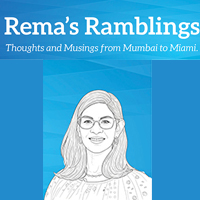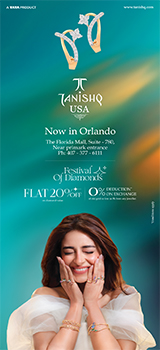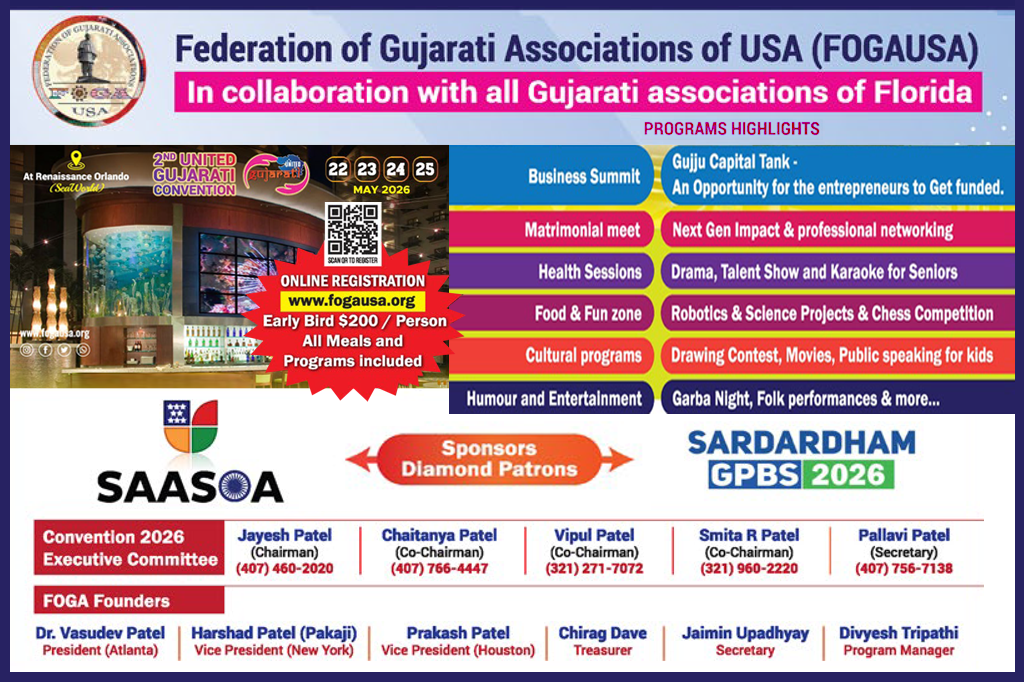Dancing Their Way to Indian Culture — How Our Children Discover Their Roots, One Step at a Time

Growing up in Mumbai, opportunities for students to perform on stage were few and far between. Most group dances happened only through school events — the annual day or an interschool competition. Therefore, as you may guess, there was some stiff competition to audition and perform in those dances as representing the school was a matter of pride. Unfortunately, that meant that I never had the opportunity to learn any Indian group folk dance, which would have been a lovely addition to my school life.
Imagine my surprise when I came to South Florida and found that children had multiple such opportunities to perform on stage, and not just through their schools, but also through local Indian associations. When my kids were young, I was introduced to IRCC (Indian Regional Cultural Center) which encourages children to perform on stage in groups. No audition necessary. Just find a group that is getting together to perform and practice with them.
A Childhood Steeped in Tradition
My children started performing in such group dances from the tender age of 4. Over the years, they danced to everything — from Bollywood hits to mythological stories, from yoga-inspired movements to colorful folk traditions. They learned:
- Bhangra
- Garba
- Raas
- Haryanvi dance
- Koli and Gondhal dances from Maharashtra
- And even an ancient Indian warrior dance!
It was incredible to see how deeply connected they became to Indian dance forms even while growing up so far away from India. The main mission of IRCC is to spread Indian culture among younger generations, and my kids experienced that very well.
Finding the Stage
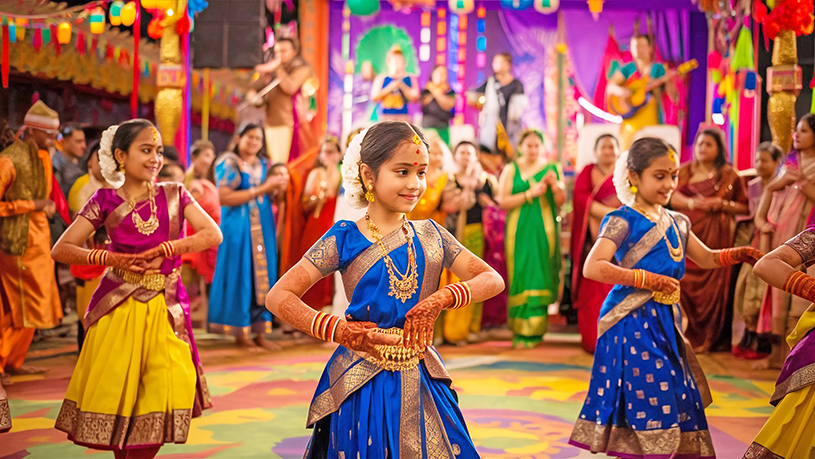
As they kept preparing for this annual dance, the choreographers who taught them invariably tried to find other avenues for them to display their talent. After all, they had spent many hours over many weeks to prepare for this one 4-minute dance.
Soon, we found ourselves taking our children to perform at events hosted by organizations like:
- Association of Indians in America (AIA) Florida Chapter
- South Florida Hindu Temple
- Bengali Association of South Florida
- Maharashtra Mandal of South Florida
- Gujarati Samaj of Tampa Bay
- Sindhi Association of Florida
- Punjabi Association of South Florida
- Gujarati Society of Central Florida
Other vibrant groups — such as the Kerala Samajam of South Florida, South Florida Tamil Sangam, and Palm Beach India Association — also host wonderful cultural programs that keep our traditions alive. And that’s just a partial list!
A Growing Movement
Our experience was of course limited to South Florida and Central Florida. A quick online search reveals so many active and inspiring organizations — including Purbasha and Soorya Foundation in Georgia, Indian Friends of Atlanta, Indian Association of Charlotte, Hum Sub, Heritage India Association of North Carolina, and India Association of Greater Charleston — all promoting Indian culture and creating spaces for children to connect with their roots.
Of course, this list too is only partial; there are countless other associations doing incredible work that may not be as visible online but are equally vital in preserving our shared heritage.
It’s truly heartening to see how community organizations across the United States are literally giving children a stage to learn and showcase their culture and their roots. Watching these children dance with such grace and authenticity reminds me that no matter how far we go, our traditions travel right alongside us.
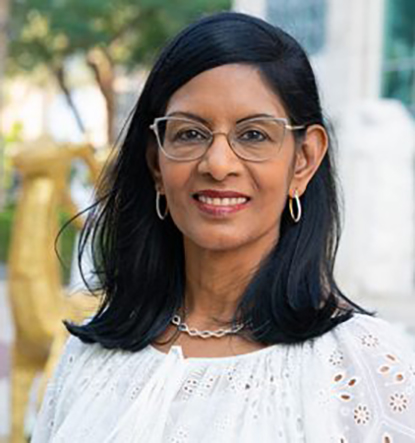
About the Author
Rema Deo is the Managing Director at 24By7Security, a Cybersecurity and Compliance Consulting firm. She lives in South Florida with her husband. A proud mother of twin boys, she is also an active member of the local Indian community.
In addition to the professional responsibilities of her function, Rema enjoys the multi-cultural aspect of the job especially as it involves learning different languages, traveling to different countries and meeting and working with people of different backgrounds and cultures. Rema is actively involved in the South Florida community and serves as a Board Member of the Indian Regional and Cultural Center, and has also served on the Board of Trustees of the North Broward Preparatory School.

